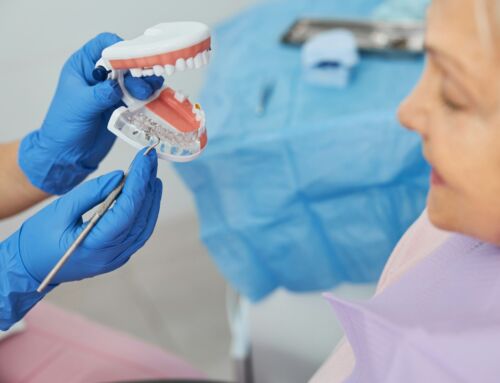Getting dental implants can be a big step toward improving your oral health and confidence. However, some people might find that talking seems a bit different or even tricky after the procedure. This is quite normal, and with time, things often get better. It’s important to understand that your mouth is adjusting to the new presence of implants, and this adjustment phase can cause temporary speech issues. Whether it’s a slight lisp or a change in pronunciation, recognising these early on can make a big difference.
Everyone’s experience is unique when it comes to dental implants, but tackling speech issues right away makes the journey smoother. Getting accustomed to implants takes a little patience and practice. The good news is that there are effective ways to help overcome speech challenges and regain clarity. Let’s explore these methods further and find out how you can enhance your speech post-implants.
Why Speech Issues Occur After Dental Implants
It’s common for people to experience some changes in their speech after getting dental implants. This usually happens because your mouth needs time to get used to having the implants in place. The changes might feel odd at first, but knowing why they happen can help you manage them.
Here are some reasons why speech issues might occur after getting dental implants:
– Adjustment to New Teeth: The presence of implants in your mouth means your tongue and lips must adapt to a new landscape. This might cause slight changes in how you pronounce certain sounds.
– Alteration in Mouth Structure: Implants change the alignment and spacing of your teeth, which can affect how you articulate words. This structural shift can lead to temporary speech difficulties until your mouth acclimates to the new setup.
– Healing Process: During the healing period after the procedure, swelling or tenderness may also play a role in how well you can speak.
Understanding these causes can reassure you that speech changes post-implants are usually temporary. With some patience and practice, most people find their speech returns to normal or even improves. Reaching out to professionals for guidance can also provide the support needed to overcome these challenges effectively.
Tips for Overcoming Speech Issues
If you’re dealing with speech challenges after getting dental implants, don’t worry—there are practical steps you can take. These exercises are designed to be simple and effective, helping you regain your voice with confidence.
1. Speak Slowly: Give each word the attention it needs. Pacing yourself ensures clearer pronunciation and reduces frustration.
2. Practice with Tongue Twisters: They can be a fun way to work on troublesome sounds. Start with easy ones and gradually try more challenging phrases.
3. Read Aloud: Spend a few minutes each day reading out loud. This could be a news article or even your favourite book. It helps you focus on articulation and clarity.
4. Stretch Those Vocal Muscles: Similar to how you warm up before exercise, gently stretch your vocal cords. Try humming softly before speaking to ease speech.
5. Record and Listen: Using a recording device helps you hear and adjust your speech nuances. It’s insightful to notice improvements over time.
Along with these exercises, it’s vital to remain patient with yourself. Change doesn’t occur overnight, but consistent effort will pay off. Think of it as training a muscle—everyday practice yields strength and flexibility.
When to Seek Professional Help
Sometimes, despite your best efforts, you might need a bit of extra help. It’s perfectly okay to seek guidance from a professional if you notice persistent issues that aren’t improving. Here are some signs that it might be time to consult a pro:
– Difficulty speaking clearly even after initial adjustment period
– Persistent discomfort or swelling affecting speech
– Feeling self-conscious or anxious during conversations
Consulting a dental professional can provide tailored advice and possibly faster solutions. An expert can assess your unique situation and recommend strategies specifically suited for you.
Maintaining Oral Health
Oral hygiene plays a crucial role in aiding speech recovery after dental implants. Keeping your mouth in top shape helps ensure everything functions smoothly, contributing to clearer speech. Here’s what you can do:
– Brush and Floss Daily: Stick to a routine that keeps your teeth clean and free from plaque.
– Regular Check-Ups: Visit your dentist routinely to monitor progress and address any arising issues early.
– Mouth Rinses: Consider using an antibacterial mouthwash to keep infections at bay.
A healthy mouth paves the way for clear communication. By taking proactive steps in your oral care, you will encourage a speedier adaptation to your new implants.
Ready to Feel Confident with Your Smile?
Understanding and addressing speech issues after getting implants can change how you feel about talking. With time and the right approach, you’ll find that conversations start to feel more natural again. Taking things step by step and reaching out for help if needed will set you on the right path.
Embrace the journey to clearer speech without stress. With diligent practice and ongoing care, you will not only regain comfort in speaking but your confidence will shine through each word.
If you’re considering dental implants in Nether Alderley, trust The Croft Dental & Implant Practice for expert care and guidance. Our skilled team is here to support you through every step of the implant journey, ensuring comfort and confidence in your new smile. Begin your path to clearer speech and enhanced oral health today.






